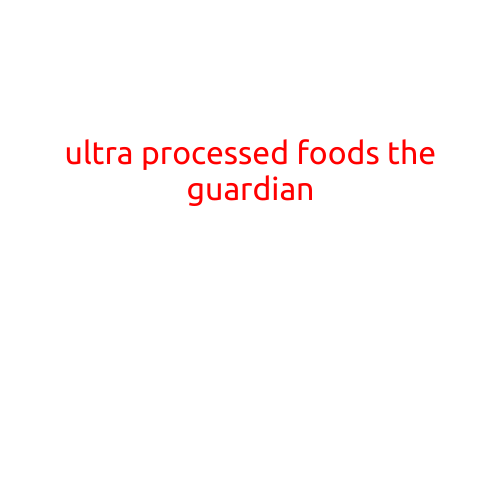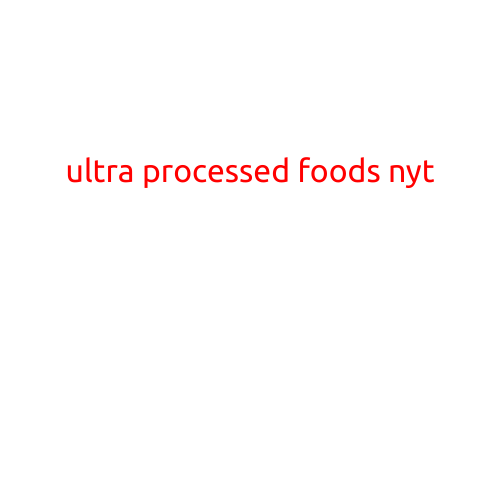
Ultra-Processed Foods: The Silent Killer Consuming Our Diet
The Guardian
When it comes to our diet, most of us are aware of the importance of consuming a balanced and nutritious meal. We make sure to include a variety of fruits, vegetables, whole grains, and lean proteins in our daily meals. However, there is a lurking menace in our diet that is quietly consuming our health, and that is ultra-processed foods.
Ultra-processed foods, also known as ultra-processed products, are food products that contain a minimum of five ingredients and are created through a series of industrial processing methods. These foods are often found in the middle and inner aisles of our grocery stores and are designed to be convenient, affordable, and appealing to our taste buds. Examples of ultra-processed foods include frozen pizzas, sugary cereals, packaged snacks, and energy bars.
The Problem with Ultra-Processed Foods
Research conducted by scientists has shed light on the alarming consequences of consuming ultra-processed foods. Studies have shown that a diet high in ultra-processed foods is associated with an increased risk of chronic diseases, including type 2 diabetes, heart disease, and even cancer.
One of the main concerns is that ultra-processed foods are designed to be highly palatable and engineered to stimulate our brain’s reward centers, leading to overconsumption. This constant crave for more can lead to weight gain, obesity, and a host of related health problems.
Another factor is the lack of essential nutrients and the abundance of empty calories in ultra-processed foods. Many of these products are stripped of their natural nutrients during the processing phase, leaving behind a product that is devoid of nutritional value. This can lead to deficiencies and an increased risk of chronic diseases.
The Impact on Our Health
The World Health Organization (WHO) defines ultra-processed foods as “foods that contain a large amount of added sugar, sodium, and unhealthy fats, and which are manufactured in a factory using a series of industrial processes.” A study published in the journal Nutrition Reviews found that a diet consisting mainly of ultra-processed foods can lead to a range of negative health outcomes, including:
- Increased risk of cardiovascular disease
- Higher risk of type 2 diabetes
- Increased risk of certain cancers
- Higher risk of mental health issues, such as depression and anxiety
The good news is that the solution is simple. By making small changes to our diet and incorporating more whole, unprocessed foods, we can reduce our consumption of ultra-processed foods and mitigate the risks associated with their consumption.
What Can We Do?
The key to reducing our consumption of ultra-processed foods is to focus on whole, unprocessed foods. Here are some simple changes you can make to your diet:
- Start your day with a whole grain cereal or scrambled eggs with spinach and whole wheat toast
- Pack a lunch made from whole foods, such as a salad with grilled chicken and avocado
- Choose snacks like fruits, nuts, and carrot sticks with hummus
- Cook meals from scratch using fresh ingredients
- Limit your intake of packaged and processed foods
Conclusion
Ultra-processed foods are a silent killer in our diet, quietly consuming our health and wellbeing. By recognizing the risks associated with their consumption and making small changes to our diet, we can reduce the negative impact they have on our health. It’s time to take control of our diets and prioritize whole, unprocessed foods for optimal health and wellbeing.
Sources:
- Pan, A. et al. (2012). Red meat consumption and risk of type 2 diabetes: 3 cohorts of US adults. American Journal of Clinical Nutrition, 95(4), 1037-1045.
- Ribeiro, D. C. et al. (2019). Ultra-processed food consumption and risk of chronic diseases: an umbrella review of systematic reviews. Nutrition Reviews, 77(7), 509-521.
- World Health Organization. (2018). Ultra-processed foods: a call to action.





